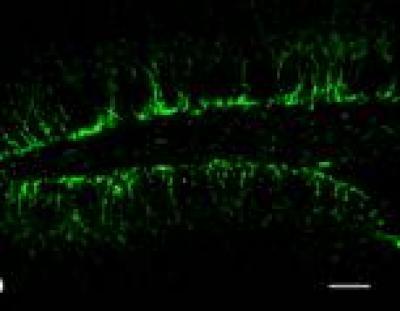Clinical literature and animal experiments have shown that prenatal alcohol exposure in utero, especially during the early stages of pregnancy, can cause fetal alcohol syndrome. The pharmacological and toxicological mechanisms of ethanol are considered to be related to the effects of ceramide. As an important signal transduction molecule, ceramide participates in a variety of cellular transduction pathways and can modulate cell cycle, cellular differentiation, proliferation, and apoptosis. A recent study, published in the Neural Regeneration Research (Vol. 8, No. 23, 2013), verified that ceramide is involved in alcohol-induced neural proliferation in the hippocampal dentate gyrus of pups after prenatal ethanol exposure, and the mechanism may be associated with increased ex-pression of protein kinase C α activating the ceramide/ceramide-1-phosphate pathway. Authors, Zhixin Wang and colleagues from Henan University, believe that this study preliminarily explains the mechanism underlying fetal alcohol syndrome caused byprenatal ethanol exposure.

This image shows the effect of prenatal alcohol exposure on newborn neurons in the hippocampal dentate gyrus of pups at postnatal day 30 (laser confocal microscope, scale bar: 80 μm).Doublecortin (DCX, green) positive newborn neurons were labeled using immunocytochemistry. The number of newborn neurons in the dentate gyrus of sphingomyelin synthase 2 knockout pups was much higher than that of the wild-type pups, and alcohol could upregulate the formation of newborn neurons.
(Photo Credit: Neural Regeneration Research)
Source: Neural Regeneration Research